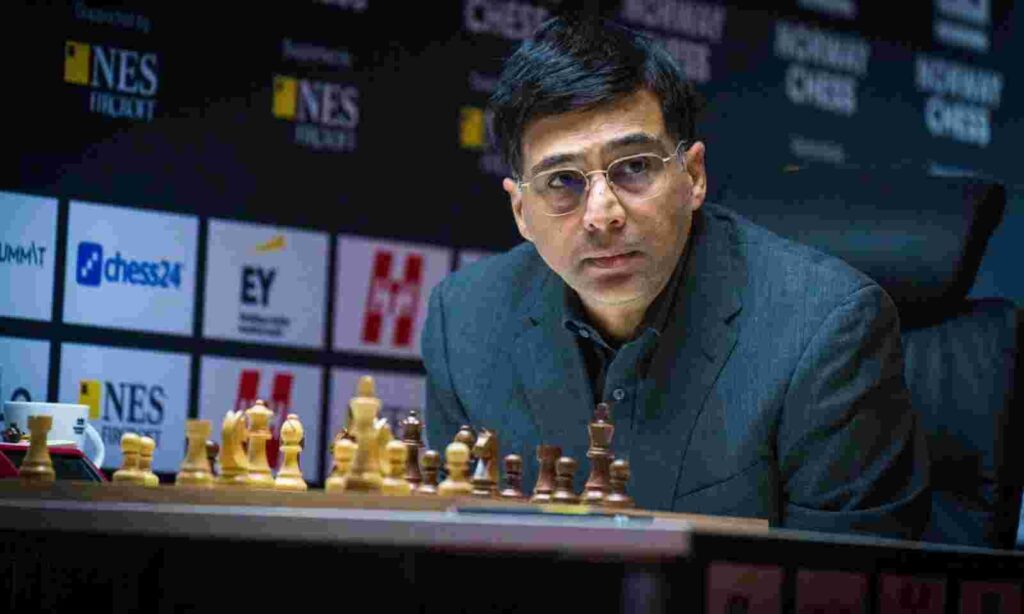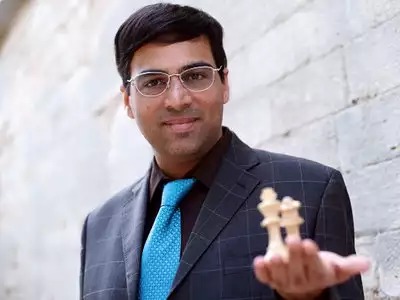The timing was perfect. D Gukesh had beaten SL Narayanan the previous night in Baku, and was now through to the fourth round of the World Cup. It meant that he consolidated his lead over Viswanathan Anand in the FIDE live ratings and could well be ahead when the ratings are published early September. I say ‘could be’ because he might drop some points and there is always that element of uncertainty in sport, something that Anand referred to as we spoke about Gukesh, what it meant for Indian chess and the road ahead. As always, Anand was candid and made some very interesting points.
Excerpts from the conversation:
Boria: Finally after 37 years, (Late 1986 was when Anand first topped the Indian leaderboard), we have someone who will be above you in the published FIDE ratings when they come out in September. And Gukesh considers you his hero, which makes the story even better. How do you see this, and could you please put it in context for Indian chess?
Anand: It is a fantastic achievement for Gukesh, and more so at his age. Having said that, he could still drop a few points before the ratings are finally published in September, so it is not yet a done deal. I say this with caution and optimism because I want it to happen. After 37 years, to see someone get past me is truly a very important moment. I have been semi-retired for two years now, so my rating is kind of stagnant at 2754. Gukesh was stuck in the 2730s for a period, and then started a second upward climb and has now gone past me. In fact, having beaten SL Narayanan in the third round of the World Cup, he should rake in a few more points and consolidate his lead. If you ask me what it feels like, I will say it is a kind of mixed feeling. While I am very pleased for him and it is like a passing-of-the-baton moment, after 37 years at the top, you kind of get used to it. So to wake up and know you aren’t there anymore will take getting used to. But it is also a relief. I don’t have to think about it anymore, and know that the sport is on a steep growth curve in the country.
Boria: That was my next question. It is not just Gukesh. While he will be in the top 10 now, may be No. 9, we also have Praggu [R Praggnanandhaa], Nihal [Sarin] and so many others doing well. From two grandmasters in 1987 to 100-plus now is quite the story of Indian chess.
Anand: Indeed it is. And look at when they are becoming grandmasters. They are doing so at 14 years of age. That’s incredible. I became a grandmaster at 18, and now the age has been pushed up by four years. It tells you how good this crop is, and how much they can accomplish in the years to come. It has been a step-by-step process, but I can tell you this is the golden generation for Indian chess. It was evident in the Olympiad when I did not even play, and we were close to winning the gold medal. Praggu is also in the top 30 and is rising steadily. Each of these players are taking on the Carlsens and Nakamuras, and beating them. Praggu will play Nakamura again in the World Cup. Gukesh making it to the top 10 is a big step. In real terms, there is not much difference between, say, 9 and 11, but mentally, top 10 is a very different thing. So yes, the future of the sport really looks good in India.
Boria: Coming back to Gukesh, he calls Anand his hero. And I am reminded of the Chess Olympiad and that match which he lost. India could have won gold had he won. He was devastated, and you decided to reach out and speak to him and spend time with him. You both played table tennis as well. This is the perfect sports story for me. No rivalry, nothing. Just the perfect mentor-protégé story, and it augurs so well for Indian chess.
Anand: Yes, he could have won that game. He had played spectacularly well right through the Chess Olympiad and was mentally in that zone where you believe that nothing can go wrong for you in the world. You don’t see reality, for you are in that mindset. In that game, Gukesh could and should have won. But then he let the position flip, and by then Praggu had won his match. That meant if Gukesh had drawn his game, India could have still won gold. But Gukesh kept playing because he was sure of winning. It has happened to me a number of times in my career. Even now when I think of these games, I kind of squirm and close my eyes and don’t want to face them. So I know what he must have gone through, or was going through then. That’s why I decided to reach out to him. I wanted to talk to him and just be there for him. He is a student of mine at the Anand Westbridge Chess Academy for three years now, and I know his family very well. So when I met him, we spoke about my experiences from the past and how such things happen in sport. We spoke for around 15 minutes, and then played table tennis for an hour. I have always tried to help in my own little way, and I hope it worked for him.
Boria: You mentioned at the start of this conversation that you are a semi-retired player now. And yet you manage to beat top-ten players fairly consistently. Some of them are half your age. This is something I find incredible. Can you talk to me a little more about that?
Anand: I spend a lot of my time with the academy, and also doing administrative work as the Deputy President of FIDE. While at the academy, I help shape training modules, plans and all else. That helps me to stay connected with the sport on a daily basis. With FIDE, my admin work means I still have time for myself. And this allows me to plan the tournaments I still play in. This year too, I will be playing end of this month, in September and in October, when I play the European Club circuit. Before I go back to playing the tournaments, I take time to focus on training, play games and try and catch up on things. I train a lot with Sandipan Chanda, for example, who is in Kolkata. These periods of training help me get ready and it is good to still play at the highest level. I enjoy doing so is all I can tell you. It is hard because the players I am playing against are all full-time players and I am a semi-retired person who is playing off and on. So, it is not easy, but so far at least, I have been able to make it work.
Boria: Finally, let me ask you this. With Gukesh in the top 10 and Praggu in the top 30, it is the kind of question I must ask. Others too are coming up the ranks. Clearly there is a lot of potential in Indian chess at the moment. But do you see any one of these players becoming the next Anand – winning the world title and being the best in the world? Do you see that happening?
Anand: Yes, I totally do. Some years back, when I used to see them, I used to feel they have the potential to get there. But it was more of a visualisation. I still had to imagine a few things. Now, that is not the case. I can now see they are getting there. They absolutely have the potential to be the best in the world, and be world champion. Whether they actually get there, we have to see. To have potential is one thing, but to actually win is another. That’s something we have to wait and see, but to answer the question, they sure have the talent to get there. I can actually see them on course now. That’s what makes me hopeful about the sport in India. The sport is robust, and can only get better. I will play my part in helping them on the way, and will be there to applaud and celebrate when it happens.
Also Read: IPL Moment for Chess and Embracing the New Generation of Indian Talent: Magnus Carlsen Exclusive





